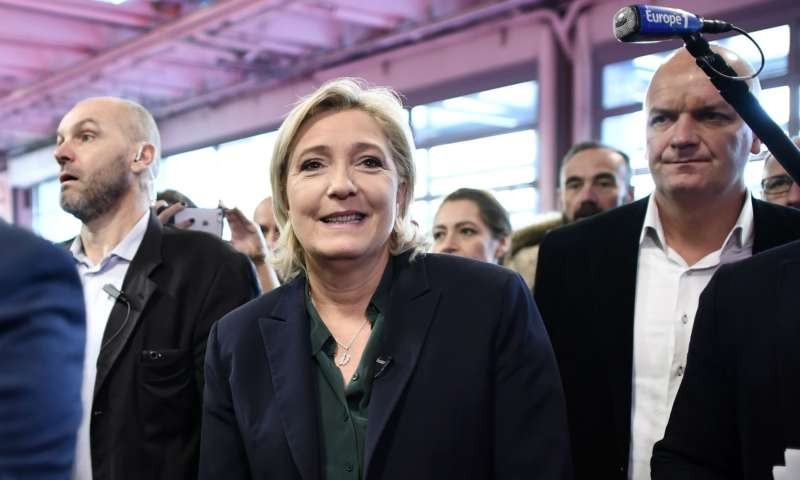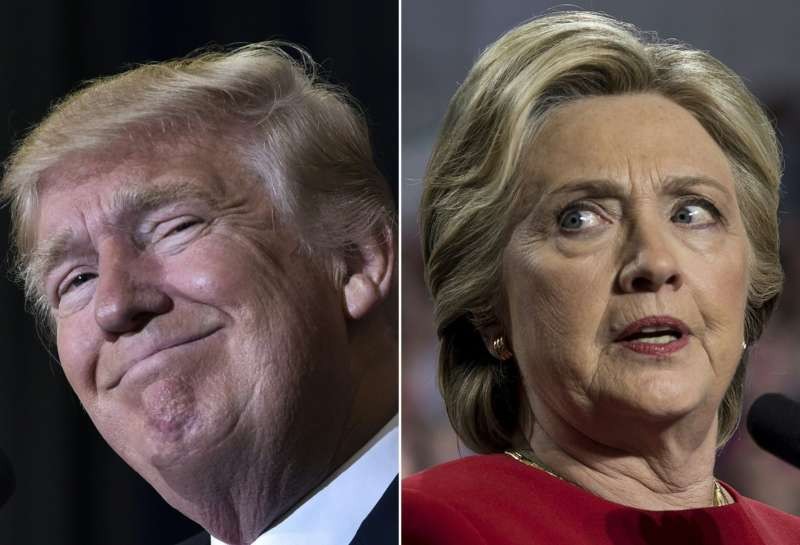
In an era in which yesterday’s inconceivable is making a habit of becoming today’s reality, it is perilous to offer firm predictions about the future, but folk carry on doing it all the same. I was recently at a conference about the causes and consequences of Brexit and the Trumpquake where I heard the French participants try to keep everyone calm by expressing confidence that those shattering setbacks to conventional wisdom would not be followed by the election of President Marine Le Pen. France was not America. Two rounds of voting would see the leader of the Front National beaten when it came to the final choice because moderate voters would coalesce behind whoever emerges as her prime competitor. We could rely on France to be a firewall against the spread of authoritarian nationalism across the west. It all sounded plausible, and their confidence was buttressed by the opinion polling, but given the recent track records of both expert opinion and polling, this forecast was more alarming than it was comforting.
Rather than peer into a foggy crystal ball, liberal democrats might better devote their time to starting to learn some lessons from the seismic shocks of 2016. The first of these is not to surrender to despair, a challenge made easier by reminding ourselves of the narrowness of these defeats. It suits Brexiters here and Trumpeters on the other of the Atlantic to roar that they represent “the people”, for this helps them in their ambition to claim a larger mandate than they have been awarded, just as it also serves their endeavour to silence any dissent. Brexiters represent just over half of a very divided British people. Donald Trump cannot even claim that much. It bears repeated repeating that he lost the popular vote, only gaining the presidency thanks to the quirks of the electoral college. Had 72,000 people across three swing states – Michigan, Pennsylvania and Wisconsin – voted the other way, we would now be watching the team-making of President-elect Clinton.
Her bewildering decision not to put more effort into those states – she did not do Michigan the courtesy of one visit – is another lesson to apply in campaigning and policymaking. Don’t take the support of anyone for granted. Particularly, don’t assume that your traditional base is safe when both the Brexit vote and the US presidential contest exposed societies fracturing along economic and cultural lines that don’t match traditional big-party divides.
There was a broad narrative in the US mainstream media, which seemed to be supported by polls, that a Clinton victory was “inevitable”. Just so with the Brexit referendum. The polls, bookmakers and most protagonists on both sides regarded it as “inevitable” that Britons would choose to stay within the EU. The treatment of both contests as foregone conclusions proved calamitous for Remainers and Democrats by inducing complacency among supporters and galvanising their opponents. Treat every fight as tight and never presume that a result is in the bag.
Another takeaway from the US election is that it has become foolish to assume that “experience” is an unalloyed asset in electoral politics. You’re probably better off presuming the opposite. In this age of rage against anything or anyone that can be depicted as “the establishment” or “the elite” choice, it has become a handicap to be an “insider” and a great advantage to be an “outsider”. This was one of Mrs Clinton’s tragedies. She was one of the best qualified people ever to run for president. As a woman bidding for a job that had always been held by men, she felt her credentials had to be superior to those of any male competitors. She would never have secured the Democratic nomination had her career been made in reality TV.
Yet when her turn to have a shot at the White House finally came round, her longevity on the scene was not an asset, but a liability. One of the more obvious lessons is that you take a big risk running a widely distrusted candidate from a political dynasty in a “change election” when many of the voters are expressing anger with the status quo. A similar conclusion can be drawn from the Brexit referendum. The barrage of “expert” opinion deployed on behalf of the Remain campaign proved far less effective at persuading swing voters than In strategists had expected.
It is also no longer safe to assume that portraying your opponent as dangerous – even if they are – will be as effective as it used to be. Trump was repeatedly described as unfit to be president, not least by Republicans. Barack Obama made his excellent joke that a man who could not be trusted with his Twitter account could not be trusted with the nuclear codes. In the Brexit referendum, Outers were often branded as reckless advocates of a blind leap into the unknown. This was true – and counterproductive as a strategy for countering them. First, because calling them dangerous did not amount to an answer to the grievances driving substantial numbers of voters in the direction of the demagogues. Second, telling a voter that something is a risk only works if that voter thinks they have a meaningful stake in society as it is and many clearly don’t. Third, branding the insurgents as rogues burnished their appeal for many aggrieved with the status quo.
A big chunk of the electorate in western democracies are, for various reasons, so discontented that they are willing to blow up conventional politics – if only to see what happens next. A lot of Trump voters told pollsters they didn’t think he was fit to be president, but put him there anyway. Italy’s Five Star Movement, pioneered by the comedian-blogger Beppe Grillo, has taken this to its logical conclusion with the slogan “vaffanculo”. That translates as “fuck off”.

You can say the new “populists” are phoneys and presume their mendacities and contradictions will be exposed once people have experience of how they wield power. Jeremy Corbyn was doing that yesterday when he had a pop at the “fake anti-elitism of rich white men like Nigel Farage and Donald Trump”. The Labour leader makes a good point. But there was a better one he could have made. Why have a former commodity broker and a billionaire property developer proved more effective at mobilising voters discontented with their economic lot than did the Labour party at our most recent general election?
The most disturbing and urgent question for liberal democrats is why their arguments haven’t had traction and why demagogic arguments are proving so resonant to so many; in the US, that included flipping substantial numbers of voters who had been for Obama into the Trump camp. A bit of the explanation is that the new demagogues have been better campaigners. All the sophisticated strategists employed by the In campaign never came up with a message to rival the crude, cut-through clarity of “Take Back Control!” All the expensive consultants on team Clinton never found a match for “Make America Great Again!” Incendiary and divisive language has always been a tool of demagogues. The new breed has taken this to another level and technology equips them with unprecedented ways of amplifying their messages. Donald Trump was recently asked whether he regretted the misogyny and racism of his campaign. He replied: “No, I won.”
His many noxious outpourings on the campaign trail were not said in spite of the fact that they would cause widespread revulsion. They were calculated to elicit a hot response from both his zealots and opponents and by doing so generate massive amounts of media coverage. A similar shock-and-horrify strategy was employed by elements of the Leave campaign during the Brexit referendum. Arron Banks, friend and financier of Nigel Farage and one of the party who were recently received at Trump Tower, has published his account of their battle plan for the referendum campaign. “The more outrageous we are, the more attention we’ll get. The more attention we get, the more outrageous we’ll be.”
This weaponising of outrage consciously creates a dilemma for mainstream politicians and media still operating within the conventional parameters of debate. If offensive and mendacious statements are ignored, bigotry and lies will not be called out. But if they are challenged, the propagators gain the oxygen they are seeking.
A critical reason that liberals have been losing is that they foolishly presumed that the big arguments were so well won that they didn’t need to fight for them. Because it was so obvious to them that liberalism and globalisation have delivered prosperity, security and opportunity, they didn’t think they needed to bother to continue making the case. When politicians of the mainstream did talk about globalisation, for too long they represented it as an irresistible force. Anyone on the receiving end of its negative impacts or unhappy with the distribution of its rewards was essentially told they no choice but to suck it up.
The overarching error was to assume that the arc of history was bent irreversibly in the direction of enlightenment, internationalism, tolerance and liberty. Now they should know better. A very old lesson must be learnt afresh. In politics, there are no final victories.
Andrew Rawnsley is the Observer's award-winning chief political commentator. He is also a critically acclaimed broadcaster and author.
